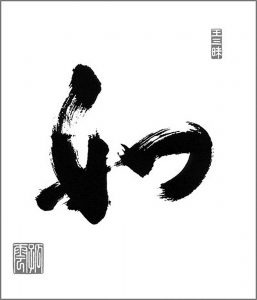Writing Non-Verbally
And Other Paradoxes
Hello friend,
This is the first installment of a newsletter about anything, or nothing. The flavor of “nothing” I’ve been thinking about lately is “no thing”.
I’ve been taking a meditation class for a bit now, and I’ve really enjoyed the mind-fuck of it all. It feels like everything is a riddle that can’t be described directly with words. A new experience for someone who is used to living mostly within their mind.
Religion is like a finger pointing at the moon, and one must take care not to mistake the finger for the moon.
-Alan Watts (but someone probably said it before him)
This quote has really helped me separate the words and descriptions of things from the suchness they’re meant to convey. It lets me suspend my disbelief long enough to wait and see what is being pointed to.
“No thing” is the finger that points me towards non-dualism, essentially the idea that “all things are empty of intrinsic existence and nature”. That there are actually no borders between things.
That alone has been a fun thing to consider. Like, where are the borders of who I consider “me”? Investigating this further and further really leaves no satisfying answer.
Side note: It’s humbling to be stumped by something that can be described so succinctly.
I don’t have enough experience to write about understanding this. But I am experienced in not understanding it. It feels a bit paradoxical. Especially considering we all need to understand so many categories, definitions, and concepts in order to learn these concepts.
Buddhism loves a good paradox. It’s an interesting feeling to try to learn about a subject whose teachers use phrases like “trying to bite your own teeth” or “look for the looker”. I guess paradoxes are a helpful tool to break analytical examination. Maybe it’s because words deal with categorization, and if you’re trying to describe non-duality, you need to break the idea of categories.
I learned that in Zen buddhism, “Koans” are statements meant to provoke the "great doubt" and initial insight of Zen-students. For example: "Two hands clap and there is a sound, what is the sound of one hand?".
When I started taking this meditation class, I thought by having an individual teacher, I would get more direct answers to my questions. Sometimes I get those. Other times, I get personalized paradoxes.
After one especially blissful meditation session, I had a strong urge to tell people how amazing meditation is. Like, I wanted to jump up and run to my phone and start texting people. I told the teacher this and he gave me some homework: “Try telling them non-verbally”.
I had a good laugh. It sounds like something you’d tell an overly talkative kid. But at the same time, I think it might be profound.
How does one tell people about meditation non-verbally? Maybe it’s just giving more space to people around you. Or meeting people where they’re at. Or being more open to exist in feelings with friends, or strangers. It feels a bit like how you might improve the world a little bit everyday.
So many of these paradoxes feel like lenses to try on, rather than riddles to solve; not to be seen directly, but to be seen through.
Or maybe they’re more like blinders, reminding us to look for an understanding beyond words or definitions.
But, here I am writing an article. Does that count as non-verbal?
Thanks for listening, I’d love to hear your thoughts.
-Colin
P.s. I’ve been adding some friends as contributors, let me know if you’d like to write and I’ll add you! There is no genre, write about what you’re excited about lately.



Beautifully written. I love that quote - "Do not mistake my finger for the moon". Once you see the moon, the finger is no longer necessary. But we often fixate on the finger, and never bother about the moon. A similar phrase I've heard is - "you have to get off the train". :)
I've often wondered - is my skin the boundary of my existence? Or is there anything that extends beyond it? Perhaps this is the greatest illusion and makes us believe we are all separate entities. We might be like a drop of water in the ocean that has a very strong sense of "I". It believes it is separate from the rest and is too fixated on its boundary. The drop doesn't yet realize that there is no boundary, and in a sense, it is the ocean.
I'm so happy to see you enjoying Zen koans and calligraphy so much! Keep writing.